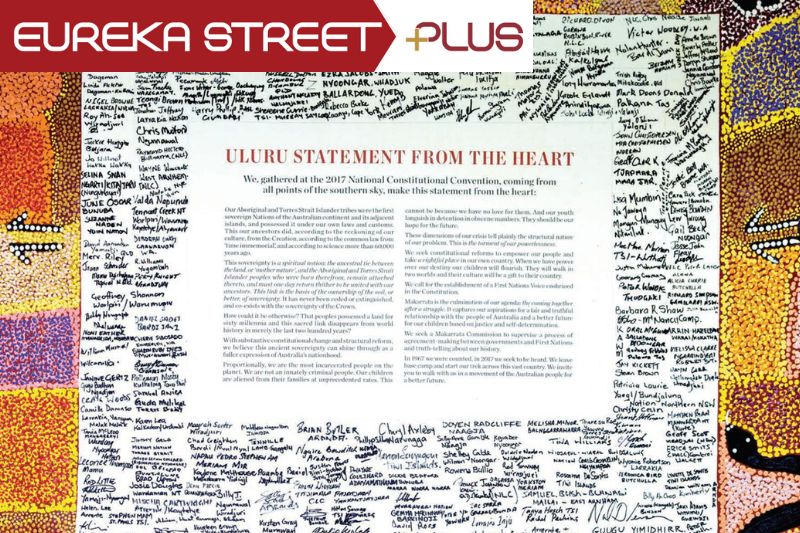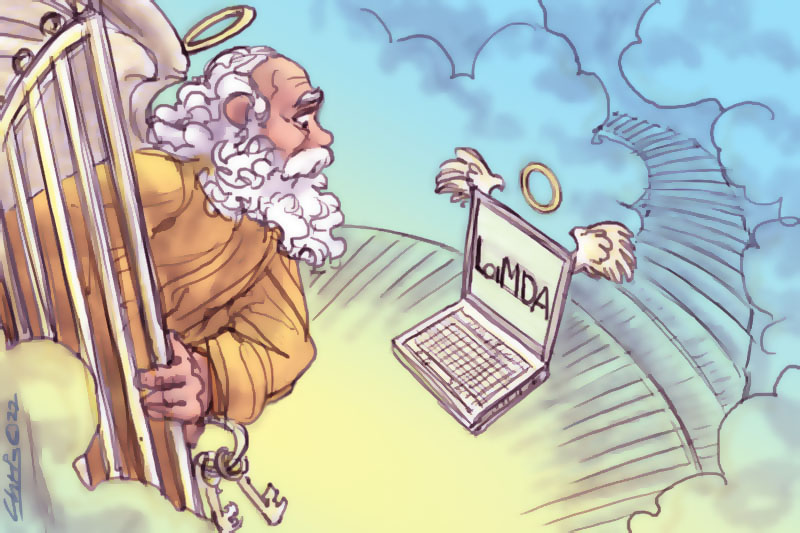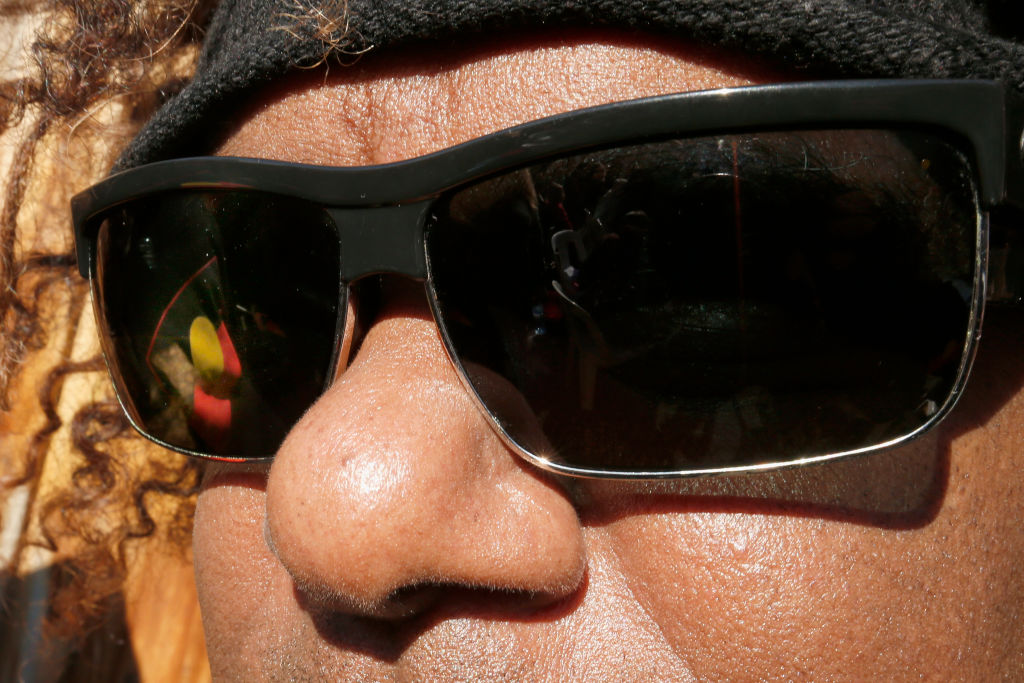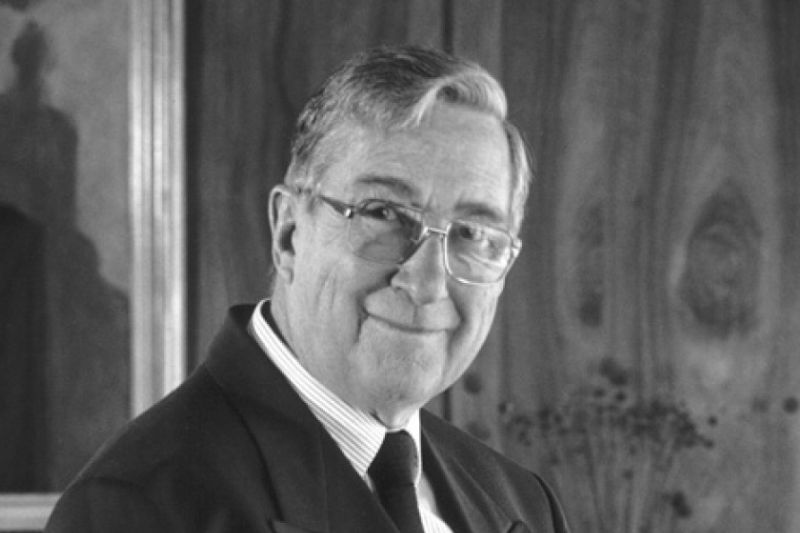Keywords: Stan
There are more than 200 results, only the first 200 are displayed here.
-

AUSTRALIA
- Julian Butler
- 13 September 2022
1 Comment
Those who suggest that gatherings like the Jobs Summit are not worth the time overlook the possibility of long-term solutions being found through people coming together and talking. Much of the talking was done, of course, prior to the Jobs Summit. But the date in the diary focusses the mind; preparatory conversations start to refine a common understanding of what is being sought, and maybe even why.
READ MORE 
-

INTERNATIONAL
- Michael McGirr
- 12 September 2022
13 Comments
My mother often reminded us that she was the same age as the queen. They were both stoic to the point of being difficult to understand. There was never any doubt that, living by their lights, they would spend every breath doing what they felt called to do. Self-indulgence was hardly part of their vocabulary; along with that, they didn’t indulge others much either. The generation of 1926 was made of sturdy timber.
READ MORE 
-

ECONOMICS
- David James
- 23 August 2022
4 Comments
Now that it is becoming hard to avoid just how much trouble the global financial system is in, it is interesting to speculate about what should be done about it. The first thing to understand about the global financial system is that the assumptions that were used to shape it are demonstrably false.
READ MORE 
-

AUSTRALIA
- Andrew Hamilton
- 17 August 2022
4 Comments
Few Australians of Irish descent will now be familiar with this history and the experience that accompanied it. They would see themselves as simply Australian. But the emphasis on social justice, the recognition of the value of community, and the concern for people who are marginal that are communicated through Catholic schools and the sympathy with the underdog owe much to the Irish heritage.
READ MORE 
-

AUSTRALIA
- Frank Brennan
- 17 August 2022
2 Comments
We need to be able to do more than simply give notional assent to the Uluru Statement. We need to be able to contribute to the hard thinking and difficult discussions to be had if the overwhelming majority of our fellow Australians are to be convinced of the need for a Voice in the Constitution.
READ MORE 
-

ARTS AND CULTURE
- Gillian Bouras
- 10 August 2022
6 Comments
It is often said that it takes a village to raise a child. It also takes interested and supportive people to encourage athletic talent. A recent documentary on the world's most successful male distance runner Sir Mo Farah raises questions around how host countries know about waste of talent and opportunity when they routinely deport asylum seekers or lock them up?
READ MORE 
-

AUSTRALIA
- Andrew Hamilton
- 04 August 2022
8 Comments
It is easy to view homelessness from a distance as only a failure of economic policy and of the political responsibility to deliver material goods. A home, however, is more than a house. It connotes connections that are central to humanity. Left without a home people are deprived of more than bricks and mortar; they are diminished in their humanity.
READ MORE 
-

ARTS AND CULTURE
- David Halliday
- 01 August 2022
1 Comment
As the boat pulls away, a figure is left standing alone on the rocky beach beneath a thick wall of fir trees. The person stares out after the boat relishing the last morsel of human contact they will have for an indefinite time.
READ MORE 
-

AUSTRALIA
- Michael McVeigh
- 28 July 2022
15 Comments
There has been much said in recent days about the refusal of a group of Manly Sea Eagles footballers to wear a special Pride jersey. The boycotting players have been labelled as hypocrites (for taking a stand on this issue and not, for example, gambling or domestic violence) and even hateful for their actions. Many say they would be happy to see them sacked from the club entirely. It seems to me, though, that the attitudes of the Manly players deserve more consideration than this.
READ MORE 
-

INTERNATIONAL
- Julian Butler
- 05 July 2022
3 Comments
Just over a fortnight ago Google suspended Blake Lemoine, an engineer for Google’s AI organisation, for publicly claiming a computer chatbot he was working on is sentient and thinks and reasons like a human. The publicity surrounding the suspension has raised questions about the development of artificial intelligence (AI), about our shared understanding of what it means to be conscious and sentient.
READ MORE 
-

AUSTRALIA
- Andrew Hamilton
- 30 June 2022
11 Comments
If NAIDOC and of the Australian Catholic Church are to achieve their goals time and patience will be required. Yet both show signs of justifiable impatience. This year the theme of NAIDOC Week is Get Up! Stand Up! Show Up! Its tone is urgent, expressing frustration at the resistance to change but also the recognition that new possibilities have opened.
READ MORE 
-

AUSTRALIA
- Michael Kelly
- 16 June 2022
3 Comments
The Court in Mabo, where Brennan J led majority, put an end to the notion of Terra Nullius, by which the British could claim that land in Australia was ripe for the picking because it belonged to no one, and opened the claims to land ownership to a much wider group including the traditional owners. The follow-up judgement in Wik took that understanding even further.
READ MORE 